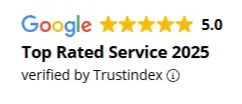Facing Embezzlement, Forgery, or Fraud Charges in Portsmouth? Our Experienced Defense Team Can Helpshire
When you’re under investigation or facing charges for a white collar crime in Portsmouth, New Hampshire, your freedom, career, and reputation are all on the line. At the Law Office of Matthew W. Peterson, our white collar crime defense attorney in Portsmouth provides strategic and aggressive legal representation tailored to complex financial and fraud-related offenses. With a deep understanding of how white collar cases are investigated and prosecuted, our firm is ready to protect your rights and build a strong defense from day one.
White-collar crimes often involve detailed financial records, electronic evidence, and government investigations. These cases can be overwhelming without experienced legal guidance. Whether you are being accused of embezzlement, money laundering, or forgery, our firm offers the legal knowledge and courtroom skill to fight back.
What Are White Collar Crimes Under New Hampshire Law?
White collar crimes generally refer to non-violent offenses involving deceit, fraud, or theft, often in professional or financial settings. In New Hampshire, these crimes are prosecuted under various statutes within the New Hampshire Criminal Code (Title LXII).
Some common white collar charges we handle in Portsmouth and nearby towns include:
Embezzlement
Embezzlement occurs when someone entrusted with managing money or property uses it for personal gain. Under RSA 637:10, this is considered a form of theft and is penalized based on the value of the misappropriated property. These cases often arise in employment, nonprofit, or government settings.
Forgery
Defined under RSA 638:1, forgery involves creating, altering, or signing a written document with the intent to defraud. Common examples include forged checks, contracts, or identity documents. Forgery charges can range from misdemeanors to felonies depending on the document’s significance.
Money Laundering
Money laundering refers to the process of concealing the source of illegally obtained money. In New Hampshire, this often intersects with drug offenses, fraud, or organized crime. Charges may involve layered transactions, shell accounts, or transfers designed to “clean” dirty money.
Bribery
Bribery, under RSA 640:2, involves offering or accepting something of value to influence a public official or employee’s decisions. It may also occur in the private sector, like business negotiations or contracts. A conviction can lead to felony charges and disqualification from holding public office.
Tax Evasion
While New Hampshire doesn’t impose income tax, evading business taxes, license fees, or other financial obligations may lead to prosecution under RSA 641:7 and related statutes. This includes filing false information or failing to report required financial details. Tax-related crimes are often prosecuted alongside federal charges.
Occupational Fraud
Occupational fraud occurs when an employee abuses their position to steal or misuse company assets. This can involve falsified expense reports, unauthorized bonuses, or manipulating payroll. These offenses are typically discovered through internal audits or whistleblower reports.
Healthcare Fraud
Healthcare fraud involves the intentional submission of false claims or misrepresentation of services to medical insurance providers. This may include billing for procedures not performed, upcoding, or using another person’s insurance information. Charges can carry significant penalties, including restitution and imprisonment.
Cybercrime
Cybercrime includes illegal activities conducted through computers, networks, or digital systems. In New Hampshire, RSA 638:16 covers unauthorized access, hacking, data theft, and phishing schemes. These charges are often complicated by digital forensics and federal involvement.
Insurance Fraud
Under RSA 638:20, insurance fraud involves intentionally providing false information to receive payment or benefits from an insurance company. This could include staged accidents, inflated property claims, or medical fraud. The level of charge depends on the amount involved and the specific conduct.
Counterfeiting
Counterfeiting refers to producing or possessing fake documents, currency, or goods with the intent to deceive. While federal charges are common, New Hampshire law under RSA 638:6-b also criminalizes forged securities and documents. Conviction can result in fines, imprisonment, and forfeiture of items.
Identity Theft
Identity theft occurs when someone uses another person’s personal information without consent to commit fraud or other crimes. According to RSA 638:26, this includes obtaining credit, goods, services, or medical treatment using stolen identities. Enhanced penalties may apply if the victim is elderly or vulnerable.
These charges can carry severe consequences, including prison time, heavy fines, asset forfeiture, and long-term damage to your personal and professional life. That’s why having an experienced White Collar Crimes defense attorney by your side is essential.
How the Law Office of Matthew W. Peterson Handles White Collar Crime Defense
White collar criminal cases are often built on months—or even years—of investigation. The evidence can include thousands of pages of financial records, email communications, digital files, and more. Prosecutors may involve state and federal agencies in gathering information and building their case.
At the Law Office of Matthew W. Peterson, we approach each case with precision and determination. Our legal team includes a former prosecutor who understands the government’s tactics and how to counter them effectively. We carefully analyze the evidence, challenge unlawful searches or seizures, and identify weaknesses in the prosecution’s theory.
Each client’s situation is unique, and our firm tailors every defense strategy to meet the specific facts of the case. Whether your case involves a misunderstanding of complex financial transactions or allegations of intentional misconduct, we are prepared to fight for the best possible outcome.
We represent clients at every stage of the criminal process, including:
- Grand jury investigations
- Pre-charge representation
- Negotiating with prosecutors
- Motions to suppress or dismiss evidence
- Trial advocacy
- Appeals, if necessary
Why Choose a Local Portsmouth Criminal Defense Firm?
White collar cases can be prosecuted at the state or federal level. Choosing a local Portsmouth criminal defense attorney gives you the advantage of someone who knows the local court system, prosecutors, and judges. Our firm routinely represents clients in Rockingham County and across southeastern New Hampshire.
If you live or work in Portsmouth or nearby towns and are facing charges like identity theft, insurance fraud, or occupational fraud, our team is ready to step in immediately and start building your defense.
Protecting Your Rights and Reputation
Being charged with a white collar crime can affect every part of your life. Even an allegation—without a conviction—can damage your professional relationships, finances, and peace of mind. Our goal is not only to defend you in court but also to help safeguard your reputation and future.
Whether you’re a business owner, medical professional, accountant, or employee accused of financial misconduct, you need a legal team that takes your case seriously. At the Law Office of Matthew W. Peterson, we approach every case with discretion, skill, and a commitment to your best interests.
Contact us now to set up a strategy session—we’re here to discuss your options, assess the situation, and help you move forward with confidence.
Frequently Asked Questions
What are the penalties for white collar crimes in New Hampshire?
Penalties vary depending on the charge and the amount of financial loss involved. Many white collar crimes are classified as felonies, which can result in years of imprisonment and significant fines. Some offenses also include restitution to victims or asset forfeiture.
Is a white collar crime a felony or misdemeanor?
It depends on the specific charge and the value of the property or money involved. For example, theft or fraud involving more than $1,500 may be charged as a felony under RSA 637:11, while lower-value offenses may be misdemeanors.
Can I be charged with a white collar crime if I didn’t intend to commit fraud?
Intent is a key element in many white collar offenses. If the prosecution cannot prove that you knowingly and willfully committed the act, you may have a strong defense. An experienced attorney can help evaluate whether intent can be challenged in your case.
Do white collar crimes always go to trial?
Not always. Many white collar cases are resolved through negotiation, including dismissal, reduced charges, or plea agreements. However, if a fair resolution cannot be reached, our firm is fully prepared to take your case to trial.
When should I contact a criminal defense attorney if I’m being investigated?
Immediately. If you are contacted by law enforcement or receive a subpoena related to a financial matter, it’s crucial to speak with a defense attorney right away. Early legal intervention can prevent mistakes and may even stop charges from being filed.



